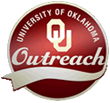Early Beginnings Early Literacy Knowledge and Instruction
This resource is the first in the, Cornerstones: An Early Literacy Series provides instructional guidance for early childhood caregivers, teachers, and leaders. Based on the research findings of the National Early Literacy Panel’s report, this document lists early predictors of reading success, learning activities, suggestions for professional development, and a glossary of terms.
Learning to Talk and Listen
This resource, the second in the Cornerstones: An Early Literacy Series publications, is based on the findings of the National Early Literacy Panel about early literacy development. As noted in the document's introduction, "It summarizes the research findings on the relationship between young children's oral language skills and their later reading achievement, and suggests implications for early literacy practices to promote children's language development."
Lets Talk! Having Meaningful Conversations With Children
This article from the Australia's National Childcare Accreditation Council's Putting Children First magazine explores the important responsibility that educators of early learners have in engaging early learners in conversation that supports learning. Though intended for Australian child care professionals, the premises discussed may be useful to educators in other countries as well.
Oral Language Toolkit
This link to the Tennessee Department of Education's Early Grades Reading toolkit provides resources on oral language development including articles, videos and websites.
Young Children's Oral Language Development
This link to the Reading Rockets website reviews how young children learn oral language.
